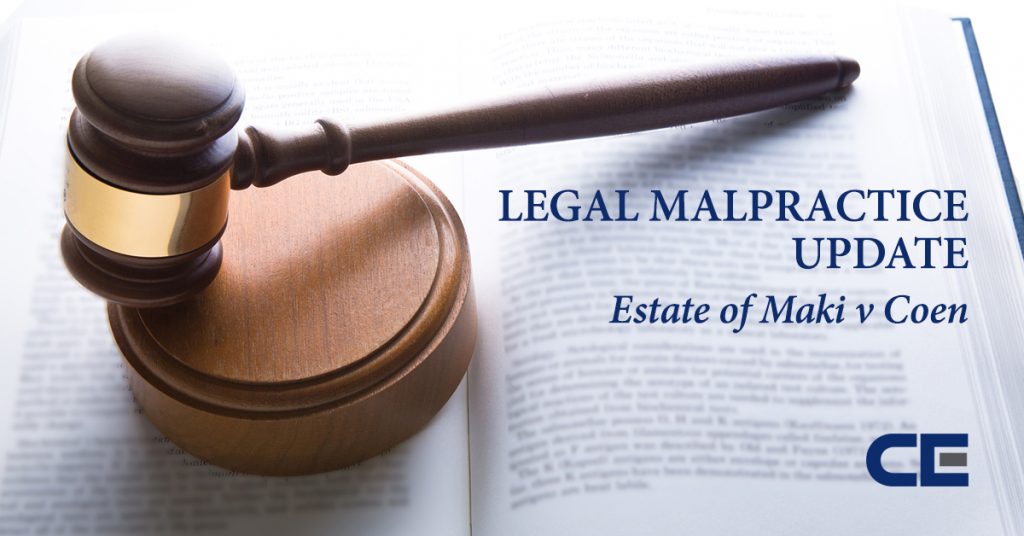 Estate of Maki v Coen (2017) holds that an attorney who represents a conservator represents only the conservator—not the conservator’s ward.
Estate of Maki v Coen (2017) holds that an attorney who represents a conservator represents only the conservator—not the conservator’s ward.
Until Maki, some parties argued that a conservator’s attorney represented both the conservator and the conservator’s ward—the “protected individual,” as the Estates and Protected Individuals Code (“EPIC”) puts it. Typically, parties argued for this pass-through attorney-client relationship based on the Michigan Court of Appeals’ opinion in Steinway v Bolden (1990).
But the Maki court saw a compelling reason to conclude that Steinway was no longer good law. Steinway relied on Michigan’s now-repealed Revised Probate Code, which included a provision stating that a conservator hired an attorney to provide services “in behalf of the estate.” The Michigan legislature abandoned that language when it enacted EPIC. Now, Section 5423 of EPIC states that a conservator may hire an attorney “to advise or assist the conservator in the performance of the conservator’s administrative duties[.]” So the Court of Appeals held that the conservator’s attorney in Maki owed duties only to his client, and not to the “protected individual” that his client served. It therefore affirmed the circuit court’s order granting summary disposition to the attorney and his law firm.
Collins Einhorn attorneys Brian Einhorn and Colleen Burke represented the attorney and law-firm defendants in the circuit court, and Trent Collier represented these parties in the Michigan Court of Appeals and the Michigan Supreme Court.
